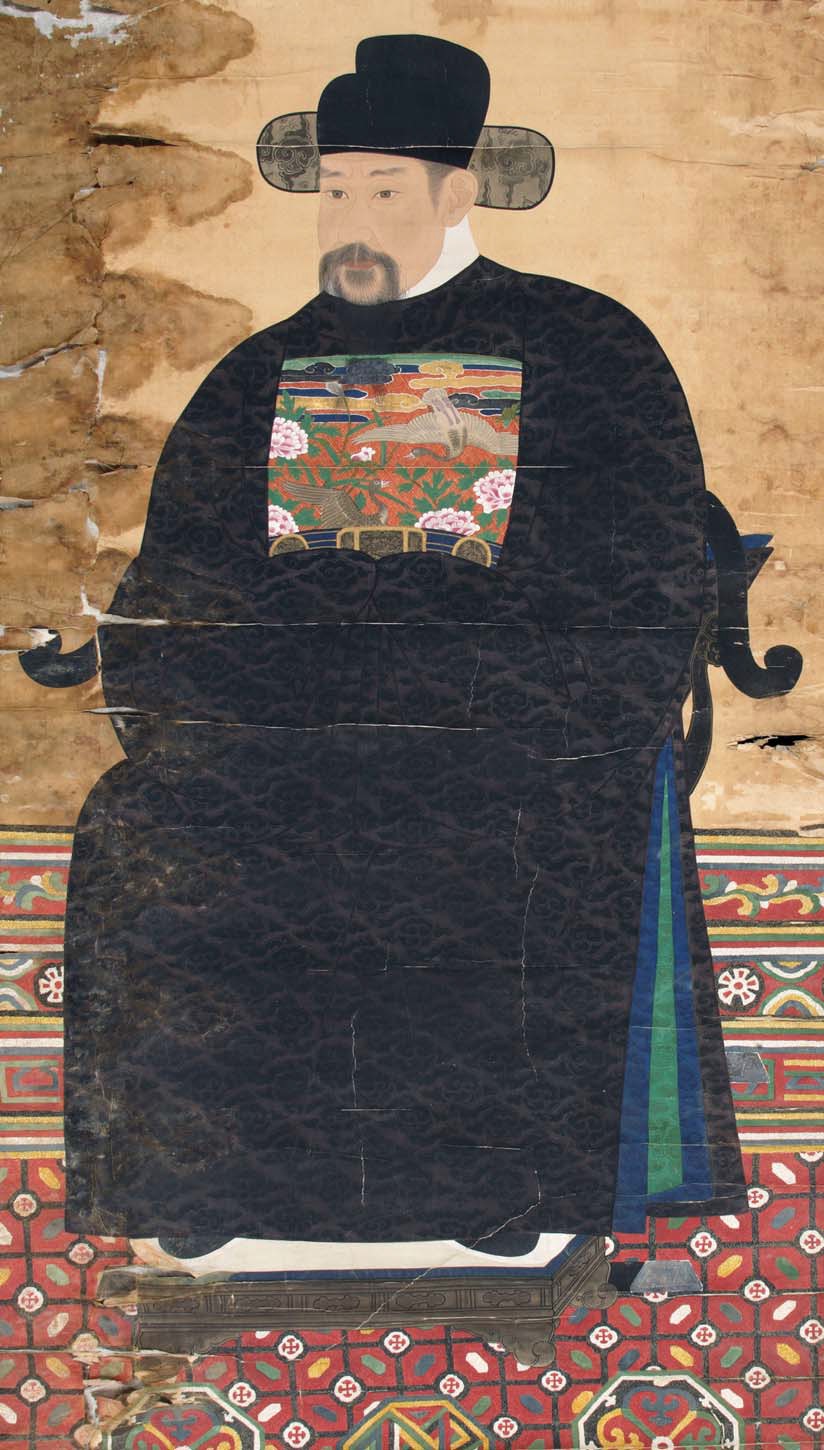Yun-hyu
| Yun Hyu | |
 |
|
| Hangul | 윤휴 |
|---|---|
| Hanja | 尹鑴 |
| Revised Romanization | yun hyu |
| McCune–Reischauer | yun hyu |
| Pen name | |
| Hangul | 백호, 하헌, 야보 |
| Hanja | 白湖, 夏軒, 冶父 |
| Revised Romanization | Baegho, Haheon, Yabo |
| McCune–Reischauer | Baekho, Hahŏn, Yabo |
| Courtesy name | |
| Hangul | 두괴, 희중 |
| Hanja | 斗魁, 希仲 |
| Revised Romanization | Du'goe, Huijung |
| McCune–Reischauer | Tukoe, Hŭijung |
| Posthumous name | |
| Hangul | 문간 |
| Hanja | 文簡 |
| Revised Romanization | Mungan |
| McCune–Reischauer | Munkan |
Yun Hyu (윤휴; 尹鑴, 1617 – 1680) was a Korean Joseon Dynasty politician and Neo-Confucian scholar, poet. Yun was the political leader of the Southern (Nam-in) faction of the Joseon Dynasty. His courtesy name was Baegho and Haheon, Yahbo.
He was nominated to be a Jipyeong (持平, 지평) as a Yebinshijeong (禮賓寺正, 예빈시정) and had served in various other posts, before he left politics to absorb himself in scholarly pursuits.
In 1660 he became a leading figure in the controversy regarding the mourning rituals over King Hyojong. In 1674 he became involved again in a second round of the controversy, this time over the death of Queen Inseon. In 1680 he was ordered to commit suicide by King Sukjong after a long public debate with Song Siyeol. In 1680 Yun Hyu was expelled and exiled to Gapsan (甲山, 갑산) and that year sentenced to death and executed.
...
Wikipedia
